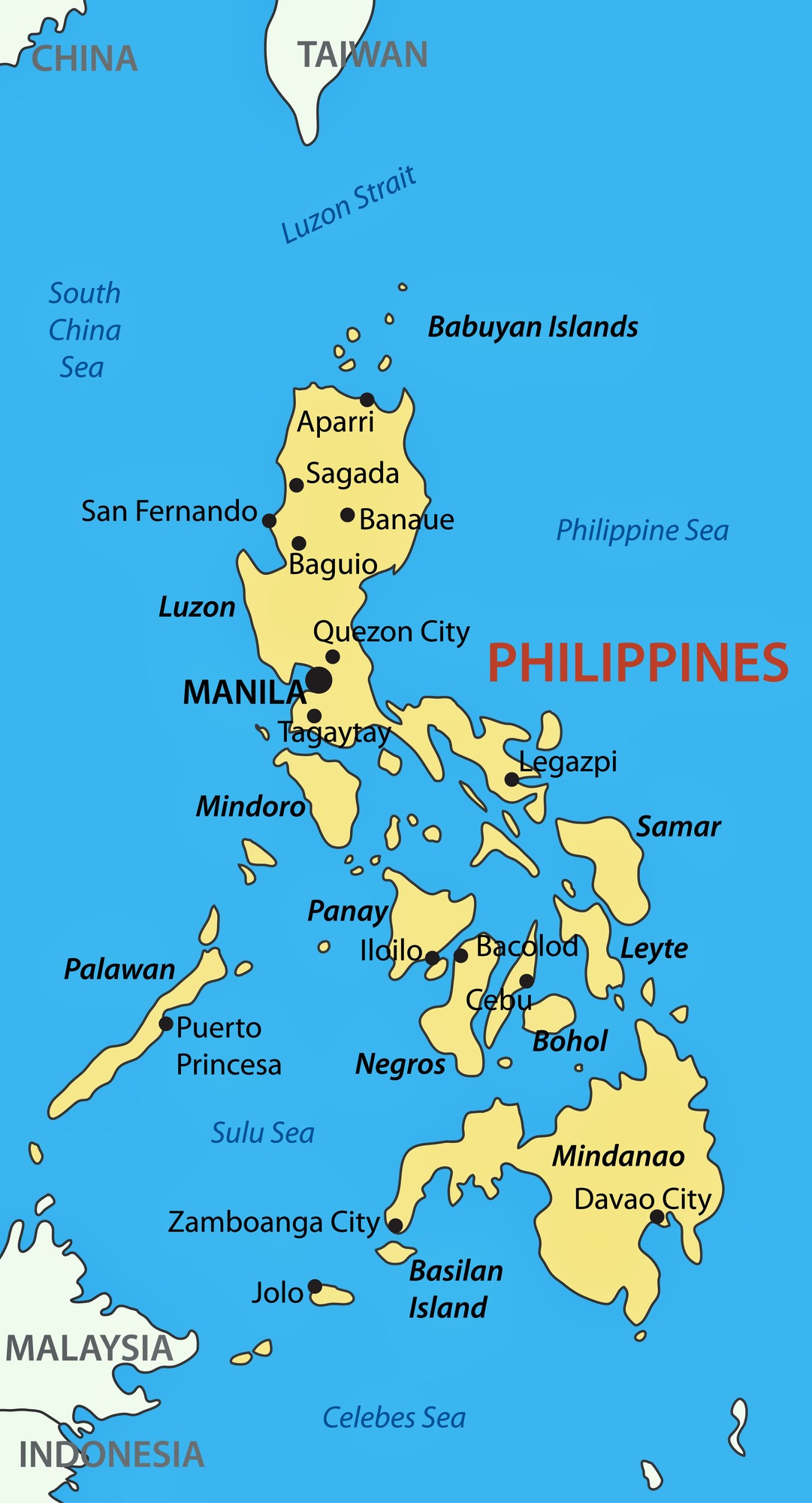It’s a big world out there and regionally it becomes more complicated every day. For years, macroeconomics, geopolitics and geoeconomics ruled my investment life and in addition to understanding your emotions, that forms our “foundation”. It is also one of the primary reasons Mahdi Nikpour is featured on this site as often as possible.
When it comes to what I’ll call “foreign” investment trends I look to the “big boys” on the street for guidance. When it comes to events outside of my economic sphere I look to those closer to the “action” and that’s Mahdi. So sit back and listen to what he has to say about this region of the world and stay tuned. It is well worth your while.
Welcome to the Philippines
The Philippines finds itself in a tricky spot walking a tightrope between the east and the west. President Marcos' recent foreign policy shift towards the United States and its allies has created a tense situation with China, its major trading partner given the country's unique export profile and major trading partners. Here's a breakdown based on a few different scenarios:
Caught in the Middle: The South China Sea Dispute
President Marcos is taking a tougher stance on China's claims in the South China Sea, a vital shipping lane. This is a “big” change from his predecessor, who tried to cozy up to China. While this new approach strengthens overall Philippines' security, it carries some economic risks.
Economic Impact of the Tug-of-War
The ongoing dispute with China could hurt the Philippines' economy in many ways.
Trade Woes: China is a big buyer of Philippine goods like many electronics and agricultural products. Strained relations could lead to various trade restrictions or boycotts, hurting Philippine exports. China might also pull back on investments in infrastructure projects, slowing down economic growth.
Resource Roadblock: China's military presence in the South China Sea makes it hard for the Philippines to explore oil and gas deposits in the area. This valuable resource could be a big boost for the Philippine economy, but tensions are getting in the way.
Defense Spending Rising: To counter China's “military might”, the Philippines needs to spend more on its own real defense. This means less money available for important areas like education, healthcare and social programs.
The Silver Lining: Diversification
President Marcos' strategy isn't all bad news for the Philippines' economy. Here are some potential benefits:
Spreading the Risk: By building stronger ties with the US, Europe, and Japan, the Philippines isn't as reliant on China. This reduces the risk of economic pressure from China.
New Investment Opportunities: Strong partnerships with these countries could open doors for new investments in many areas like infrastructure, technology and renewable energy, giving the Philippine economy a genuine shot in the arm.
Military Muscle: Cooperation with western allies should provide the Philippines with access to better military technology and training, helping them in defending themselves more effectively.
The US Factor and the Global Economy
The U.S. plays a key role. America's recent pledge to defend the Philippines in case of a conflict with China is a big security win. A strong United States economy benefits the Philippines as it means higher demand for all Philippine exports and more money sent home by overseas Filipino workers. Uncertainties surrounding the United States politics and potential shifts in its foreign policy could create economic challenges for the Philippines down the road.
The Philippines' delicate dance with the U.S. and China requires careful investment planning. Here's a breakdown based on different scenarios, incorporating the recent Fed decision and its impact on markets, explained in plain English.
Base Case: Simmering Tensions
US Tech Stocks: Hold or slightly overweight. The Fed's dovish tone and a strong U.S. economy are good signs for tech stocks. However, keep an eye on ‘US-China’ relations, especially considering the Philippines' has a significant role in United States tech companies' operations through outsourcing in Google and Facebook. A major conflict could cause tech stocks to plummet.
Oil Market: Overweight. Rising tensions could disrupt oil supplies, pushing all prices higher. Look for undervalued oil companies outside of China's influence, considering the Philippines is a net importer of oil.
Metals: Overweight copper and nickel. These metals are very crucial for building renewable energy infrastructure, which could benefit from overall increased US-Philippine cooperation. The Philippines has significant known copper resources, that could potentially benefit from higher prices.
Gold: Hold. The dovish Fed is keeping interest rates low, which is good for gold prices. But if tensions do rise significantly and the dollar strengthens, gold prices might not go much higher.
Inflation: Consider inflation-protected securities due to potential supply chain disruptions, higher oil and electronics prices if indeed tensions escalate.
Bull Case: Peaceful Resolution
US Tech Stocks: Overweight. A de-escalation between China and the U.S. would boost global markets, especially tech stocks. This could significantly benefit the Philippines' outsourcing industry, a major contributor to the economy.
Oil Market: Neutral. Prices could stabilize as worries about supply chains ease. Look for many undervalued refiners positioned to benefit from increased regional trade, potentially boosting the Philippines' refining industry.
Metals: Overweight copper and nickel investment. Infrastructure projects across the Philippines and Southeast Asia are likely to surge, driving a demand for these metals, potentially benefiting the Philippines' copper resources.
Gold: Profit Taking. With tensions easing and the United States dollar potentially strengthening, it might be wise to sell some of your gold holdings.
Inflation: Reduce inflation hedges. A calmer overall “geopolitical” climate and a potentially stronger economy could lead the way.
Bear Case: Escalation into Conflict
US Tech Stocks: Underweight. A full-blown overall conflict could trigger a global market sell-off, especially in tech stocks. The Philippines' outsourcing “industry” could be significantly impacted.
Oil Market: Very overweight. Oil prices would skyrocket due to potential supply disruptions. Invest heavily in major oil producers outside of Southeast Asia as the Philippines relies heavily on oil imports.
Metals: Neutral. Demand for most metals would likely fall as economic activity contracts.
Gold: Overweight. Gold would likely surge as a safe-haven asset. Investors flock to gold during times of uncertainty.
Inflation: Significantly overweight all inflation hedges as driving up most import prices will trigger overall inflation. Governments would more than likely struggle to contain rising prices due to potential supply chain disruptions.
As I always comment, not too shabby. Mahdi is a macroeconomist at heart and given his location in what I’ll call a “hotbed” of geoeconomics, he is better able to relate to that region of the world. Face it, regardless of who is “sailing the boat” right here in the United States, we are isolated from the world’s problems. While somewhat liable to succumb to potential tragedies, we maintain a fairly even keel. maybe it is time to spread our influence a little further and take complete charge as we did way back in 1944 when MacArthur returned.
“When Johnny Comes Marching Home” was emblematic of the struggles we faced in the great “Civil War”. If you listen to today’s “news” you would have to think what we are enveloped in today is far worse. It’s our “democracy” that’s under attack, right? I am not as certain versus what’s preached daily but who am I? I am a believer in the overall construction of the Constitution, especially the part about how we are set up to be a Republic with rights being delegated to the States but even that premise is in great jeopardy. Could we have another Civil War in the United States? Perhaps that’s in the cards, at least that’s what one side thinks will happen. More importantly, what do you think?





